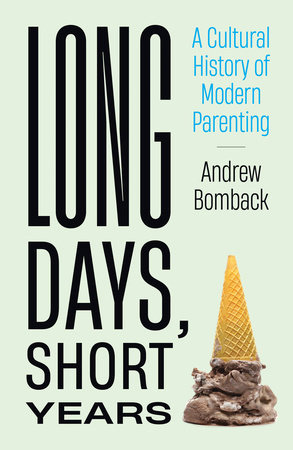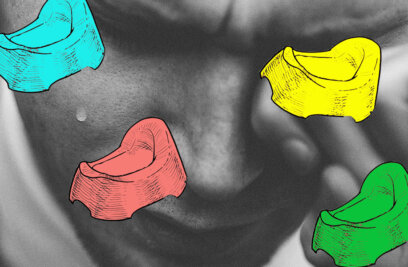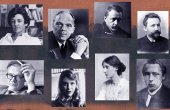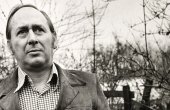What Popular Culture Is Telling Us About Parenting

Every discussion of parenting is also, to some degree, a discussion about gender dynamics. There are families in which both parents strive for a 50–50 share of responsibilities, and stay-at-home dads are becoming less and less of an anomaly. Nevertheless, parenting remains arguably the most gender-normative component of modern adulthood. My wife Xenia and I, both physicians with busy work schedules, have tried to employ a 50–50 split of parenting, but, in truth, her share approaches something like 65 percent.

I try. I make lunches, do laundry, supervise brushing teeth, and read bedtime stories. I brag all the time about how much more I do for my kids than other fathers I know. Still, the division of responsibilities in our marriage is more an assignment of duties rather than an actual sharing of parental roles. In other words, Xenia is Mommy — the one whom the kids cry for when they hurt themselves, the one who cuddles with them in bed, the one who almost never yells — and I am Daddy. I’m happy to entertain them, make sure they’re safe and happy and healthy, but I am also comfortable leaving the nurturing, the moral education, the true “parenting” to their mom. Indeed, the parenting books that have led me to use phrases like “moral education,” the books that assume parent is a verb, are so obviously targeted toward mothers that, in some ways, I feel demasculinized reading them on my commuter train, with their cover images of babies and teddy bears and moms down on their knees tying their kids’ shoes. Across movies, books, television shows, and podcasts, the modern version of parenting portrayed in contemporary popular culture is vastly different for moms than for dads.
June Cleaver became Carol Brady, and Carol Brady became Clair Huxtable, and Clair Huxtable became Roseanne Conner, or maybe Marge Simpson. The through-line from one generation’s iconic TV mom to the next is fairly consistent. The mothers — even those who work like Clair Huxtable, a lawyer with amazingly flexible hours, and Roseanne Conner, who bounces around from one waitressing job to another — manage the household without any significant input from the fathers.
When Dad comes home at night, he is lionized for sitting down with his children and having a heart-to-heart about whatever big issue is driving the current episode. Ward Cleaver counsels Beaver on how to deal with a bully. Mike Brady tells Marcia she’s beautiful despite her new set of braces, because beauty comes from within. Heathcliff Huxtable helps Vanessa nurse a broken heart after her boyfriend has cheated on her and gets Theo to see the merits of a hard-earned B in biology. Even Homer Simpson can be found asking Bart to come outside and play catch beneath an idyllic sunset to relieve some of his son’s school-related stress.
None of these fathers, however, are responsible for the groceries, the laundry, the school forms, the carpools, the piano lessons, the soccer practices, the gymnastics classes, or the overdue thank you notes from last year’s birthday parties. To be fair, the mothers are not usually depicted doing these things either, but there is a tacit understanding in these shows that Mom has the minutiae under control, and hence the house maintains its overall peace.
The fathers in these popular entertainments are living in the chaotic world of parenthood (a noun, a state of being) but are not drowning in the tsunami of parenting (a verb, an effort).
When comedian Louis C.K. premiered his television show “Louie” in 2010, he presented a drastically different view of domestic comedy. He inserted into his show all the boring, tedious, and frustrating details of modern parenting. That level of honesty was an outlier not only on television but across all forms of popular media at the time. Most novels and memoirs focusing on parenthood omitted these parts of the job as well, under the assumption they’d come across as mind-numbingly tiresome on the page as in real life. “Louie” suffused its hyperrealistic portrayal of parenting with comedy, which perhaps softened the blow, but the other contemporary artist doing the closest thing to Louis C.K.’s work at the time, Karl Ove Knausgaard, would never be mistaken as a comic writer.
The specter of parenting hovers over the entirety of Knausgaard’s six-volume work, “My Struggle,” with about equal space devoted to the author’s relationship with his father and the author’s relationship with his wife and children (three at the time of “My Struggle;” a fourth was born after its publication). And like Louis C.K., Knausgaard feels no inclination toward eliding over the mundanities of raising children. In fact, his extended dives into the daily routines of parenting, with dozens of pages covering a walk to school or a trip to the grocery store to pick up last-minute dinner items, seem intended to challenge his readers to keep up with him in his quest to survive the blows of fatherhood.
Knausgaard’s parenting stories are riveting. They are tedious at times, but they are riveting in their tediousness. James Wood, writing for the New Yorker on the first two volumes of “My Struggle,” summed up this phenomenon:
Even when I was bored I was interested (which is pretty much like life itself). The prose is often offensively prosaic; the scenes (such as they are) often painfully banal. Knausgaard wants his struggle to be your struggle, too; he immerses the reader in all the clumsy, extraordinary varieties of experience, from changing diapers to playing in a crappy rock band.… Many writers strive to give you the effect, the illusion, of reality. Knausgaard seems to want to give his readers the reality of reality.
By willfully acknowledging how uninteresting parenting can be, Knausgaard, like Louis C.K., has broken away from the expectations of a father, or a mother for that matter. In her own book about motherhood, “Little Labors,” Rivka Galchen anoints Knausgaard and Louis C.K. as the most distinguished “mother writers” of the day. This praise is rooted in their shared ability to address the drag that parenting can be, the way children can suck up your time, your energy, and your overall identity.
The problem with Galchen’s praise of Knausgaard and Louis C.K. as mother writers is the same problem plaguing so many fathers: They exist in a world with different expectations for fathers than for mothers. An essay about “Parent Corner,” a segment of a popular football podcast in which the hosts complain about the antics of their children, uses the term “fandom parenting” to describe the tales they recount each week. One host expresses his dismay at his son stealing candy from a Halloween party while the other grouses about an elementary school scheduling a winter recital head-to-head against an important Thursday night football game. These men talk about a child’s obsession with slime in the same analytical way they’ve just discussed a quarterback’s tendency to throw interceptions at the end of the first half. They observe and have vested interests in the outcome, but they don’t participate. The Knausgaard on the page and the Louie on the screen do, of course, participate, but the stakes don’t seem that high for these fathers, either. If Louie packs the wrong lunch, his daughter just trades it at school for something better. If Knausgaard is late to pick up his children from the daycare, the teacher might give him a scolding, but it’s playful, almost flirtatious.
The fathers in these popular entertainments are living in the chaotic world of parenthood (a noun, a state of being) but are not drowning in the tsunami of parenting (a verb, an effort). There’s a section in Book 6 of “My Struggle” in which Knausgaard discusses a family vacation that ends with a disastrous flight home. After delineating the turmoil of dragging three sleepy kids through an airport, baggage claim, taxi line, and the drive back to their apartment, he takes a moment after all the children are finally tucked into their beds. “The last thing I did was to put Heidi’s dinosaur egg in a bowl of water,” he writes. “So that it would have cracked and a little dinosaur would have emerged by the time she woke the following morning.” It’s a beautiful image that also divulges the confidence he feels as a father. He can handle the chaos, or at least he can handle the role expected of him in this chaos.
Molly, the protagonist in Helen Phillips’s “The Need,” is not feeling this brand of confidence. Left alone with her two small children while her musician husband is playing a gig in South America, Molly senses an intruder in her house in the book’s opening pages. Molly holds her infant son in one arm and cradles her soon-to-be-four-year-old daughter in the other. When Viv, the daughter, starts to speak, Molly cups her hand over the girl’s mouth.
She remembered, for the first time in a long time, an old fear of hers from when Viv was newborn: that she would go into the baby’s room in the morning after letting her cry herself back to sleep in the night only to find an empty crib with a scribble of blood on the sheet, identical to the scribble of blood where a mouse thrashed its way out of the trap on the concrete floor of the basement of her childhood home.
This fear is meant to signal the guilt and anxiety Molly feels about her mothering. If that’s not clear enough to the reader, we eventually learn the identity of the house’s intruder is Molly herself. If not exactly Molly, then an alternate version of her, named Moll, who has arrived to both help (she dons a fish costume to entertain all of Viv’s friends at her birthday party) and torment (she makes passionate love to Molly’s husband when he returns home unexpectedly from his business trip) the reeling mother.
As Molly ponders her children in one of the book’s early scenes, Phillips gives us a glimpse into the mother’s psyche: “Moment by moment, maddened by them and melted by them, maddened/melted, maddened/melted, maddened/melted.” This push-pull between enjoying and suffering through parenthood is embodied by Moll, who may or may not be real (Xenia and I had a fairly extended argument about this point, and I worry that my insistence that Moll is real says more about my gender than my reading acumen). Prior to her invasion of Molly’s home, Moll has lived a parallel version of Molly’s life, with a mirror husband and two children. But Moll has recently lost them to an explosion, a bomb set off at her workplace, which is essentially the same workplace as Molly’s. Moll can unconditionally cherish the time she spends with Molly’s family because of her loss, and only because of this loss. Before their deaths, she, like Molly, cycled through the ups and downs of motherhood, alternating between the melting and the maddening. It is no coincidence that the children die at the mother’s workplace, this arena of guilt for moms who sense they should be more present for their children but know they need their own space and identity. It’s hard to picture Ward Cleaver or Heathcliff Huxtable or even Karl Ove Knausgaard facing down such demons.
A monstrous rage lurks in all of the popular culture depictions of mothering that would feel alien in books, shows, movies, or podcasts focused on fathers.
“The Need” is emblematic of recent books and films in which the chaos of parenting is sinister and monstrous for women, threatening to destroy their sanity and the family structure they’ve fought to build. Success — even survival — is not guaranteed for the mothers in these texts the way fathers like Louie or Bill Simmons, the host of the football podcast, always come out relatively unscathed at the end of their parenting tales. Before the narrator in Jenny Offill’s “Dept. of Speculation” sees her marriage wrecked by her husband’s affair with a much younger coworker, she watches her life crumble apart under the weight of mothering a colicky daughter she refers to as the “devil baby.” The screaming of this devil baby, who can only be calmed by trips to the local Rite Aid pharmacy, rings like “a car alarm … perpetually going off in my head.” When a well-meaning older woman on the subway uses the phrase “sleeping like a baby,” the narrator confesses, “I wanted to lie down next to her and scream for five hours in her ear.”
In “Tully,” a film written by Diablo Cody, Marlo is a suburban mother of three whose frantic household is rescued by the arrival of Tully, a night nurse intended to help with Marlo’s newborn daughter. Tully’s services soon extend to the entire household, including a threesome with Marlo and her husband. The temporary bliss that Tully’s presence brings to Marlo and her family is erased, however, when Tully announces she can no longer work for them. A tormented, exhausted Marlo ends up falling asleep at the wheel of her car and driving into a river, only to be saved by a mermaid-like Tully. When Marlo wakes up, she is in a psychiatric hospital, where it becomes clear that Tully never existed, and the drive into the river may have been intentional. Here, as opposed to Moll in “The Need,” there is no debate about Tully’s reality. We learn that Tully was Marlo’s maiden name: the patient, saintly, grounded identity she relinquished for marriage and motherhood.
In “Tully,” the mother almost dies. In Leila Slimani’s “The Perfect Nanny,” the children are literally sacrificed to the alter of trying to be a perfect mom. Deemed the working mother’s worst nightmare in its publicity material, Slimani’s novel tells the story of Miriam, a lawyer with two small children, who finally is able to return to work and reclaim her identity (we are told, more than once, about how well she performed in law school and how tenacious her lawyering was prior to having children) thanks to Louise, a nanny who initially seems like Mary Poppins reincarnated. In the beginning, everything is “melted.” Louise adores the children, and Miriam, relieved of the burdens of stay-at-home motherhood, gets to adore them too. But with time, the family structure, exemplified by Louise, devolves into the “maddened” component of parenting. As Louise assumes more and more of Miriam’s designated role — she arrives earlier, stays later, goes on vacation with the family — she loses control. Attentiveness becomes obsession. Frustration becomes murderous rage. “The baby is dead,” the book begins, and the next line describes the near-death state of the baby’s older sister. We know right from page one that both children will be murdered. Slimani is not trying to conceal her outcomes or her opinions. Modern motherhood is chaotic, dangerous, and toxic.
A monstrous rage lurks in all of these popular culture depictions of mothering that would feel alien in books, shows, movies, or podcasts focused on fathers. How much of this is cultural, and how much of this is biological? And do those distinctions even matter in the 21st-century sport of competitive parenting? In an article published in the early days of the pandemic, Sara Petersen, lamenting the “impossible state” of modern motherhood, writes, “In reality, mothering is not respected as ‘real work.’ It figures in our collective imagination not as labor, but as something warm and fuzzy and supposedly ‘natural.’ Maternal love and self-sacrifice are put on a pedestal by white patriarchy, but maternal work, the lifeblood of literally everything, is still invisible.” In this context, the monstrous rage in works like “The Need” and “Tully” is a clear attempt to make maternal work visible. In direct contrast to social media’s (particularly Facebook and Instagram, which have been infiltrated by “momfluencer” content) portrayal of “an idealized fantasy of motherhood at odds with the lived experience of motherhood,” to quote Petersen again, many of today’s female artists are creating works that pull back the curtain to lay bare the sometimes excruciatingly painful experience of being a mom.
The maddened/melted female protagonist is not unique to the present day. Female authors have depicted frantic women, nearly all of whom are mothers, as far back as the 19th century. What is unique to these modern works, however, is the direct identification of parenting — and, in some instances, the children themselves — as the source of madness. As the poet Sarah Vap writes in “Winter: Effulgences and Devotions,” her 2019 book-length exploration of how the demands of motherhood have drained her creative output, “I am losing language as my children are gaining theirs. I am losing my coherence as the children are gaining theirs. I am losing my belief in all the systems of earth just as the children are beginning to apprehend them.” Women in literature have lost language, coherence, and belief before. Edna Pontellier in Kate Chopin’s “The Awakening” (1899), Antoinette Cosway in Jean Rhys’s “Wide Sargasso Sea” (1966), and Sophie Blind in Susan Taubes’s “Divorcing” (1969), for example, all descend into some degree of madness, but the source of their descent is their marriage, their husbands, and their society’s expectations of them as wives, not mothers.
The tormented wife remained the dominant “madwoman” archetype through the beginning of this century, with children often cast as minor characters bearing the brunt of their mother’s madness rather than assuming any responsibility for her unhappiness. The female protagonists in Catherine Texier’s “Breakup: The End of a Love Story” (1998) and Elena Ferrante’s “The Days of Abandonment” (2002) both respond to the discovery of a husband’s affair with a state of near paralysis followed by fits of intense rage directed at everyone and everything in their vicinity. This includes their children, who are depicted as innocent and undemanding, the poor victims of their mothers’ crumbling under the pressure of a failed marriage. These books barely touch upon the logistics of parenting. For example, Ferrante spends more time exploring how much the novel’s protagonist Olga neglects her dog, who eventually dies, than describing how she manages to raise two children on her own.
This is in stark contrast to modern titles like Julia Fine’s “The Upstairs House,” a horror novel about a new mother, Megan, who is haunted by the ghosts of Margaret Wise Brown, the children’s book author, and Brown’s lover, Michael Strange. Fine spins a surreal, frightening tale of this haunting but also manages to sprinkle in details about pumping breast milk, assembling a Pack ’n Play, and fretting about sleep schedules. “I get that people don’t want to read about the adult diapers you wear after you have a baby,” she said in an interview about the book, “but let’s not pretend that those can’t be just as literary as, you know, Philip Roth’s erection.” “The Upstairs House” eventually turns into a painful tale of postpartum psychosis culminating in Megan’s hospitalization in a mother-baby psychiatric unit and her daughter losing a finger as a result of her mother’s delusions.
When Karen Russell’s short story “Orange World” was published online, Twitter and Facebook lit up with comments from mothers who saw some version of themselves and their struggles in this speculative piece of fiction. The story blends elements of horror and science fiction in its tale of a young expecting mother, Rae, who strikes an unusual deal with the Devil. Rae is so fearful of the uncertainty awaiting her and her unborn child that she agrees to breastfeed the Devil every morning in return for the promise of her new baby’s safety. The powerlessness of parents amid a realm of household terrors runs through every sentence in this story. The shocker in “Orange World” arrives when Rae finally attends a support group for mothers and divulges her painful secret. Another new mother confesses she’s struck a similar deal to keep her child alive and safe. The veteran moms in the group admit they’ve dealt with this too. Rae has not been nurturing the Devil but a devil, like all the moms who’ve come before her.
After reading “Orange World,” the author and artist Miranda July tweeted, “For me this was a non-fiction exposé about normal, everyday life. When it was done I did the thing where u weep & have big thoughts about whole scope of your life & all the plainly obvious things you’ve been ignoring. They’re just right there.” The same sort of praise thrown at Karl Ove Knausgaard and Louis C.K. for their stories about parent-teacher meetings and after-school playdates was cast, by women to a woman, for a story about a young mother losing her mind and body to a breastfeeding devil.
Andrew Bomback is Associate Professor of Medicine at Columbia University Irving Medical Center and the author of “Doctor” and “Long Days, Short Years,” from which this article is adapted. His essays have appeared in the Atlantic, Los Angeles Review of Books, McSweeney’s, and elsewhere.




